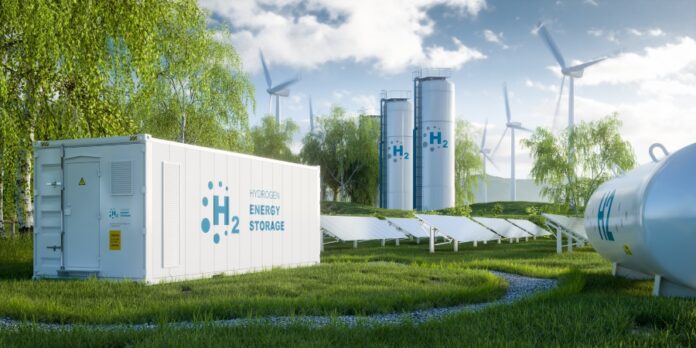A recent study by Aquilas, et al. (2024) titled “Industrialization and environmental sustainability in Africa: The moderating effects of renewable and non-renewable energy consumption” published in Heliyon, shows that manufacturing value added has a negative and significant effect on environmental sustainability in Africa.
“
Renewable energy use in Africa’s manufacturing sector reduces environmental impact, supporting sustainable industrial growth and climate goals. – Aquilas, et al. 2024
This article explores the impact of industrialization on environmental sustainability in Africa, with a focus on how renewable and non-renewable energy consumption influence this relationship. Industrial activities, essential for economic growth, often present a challenge to environmental sustainability due to increased emissions, pollution, and resource depletion. However, the study finds that this negative impact can be alleviated by integrating renewable energy sources into industrial processes. When manufacturing and other industrial activities are powered by renewable energy—such as solar, wind, or hydropower—the environmental footprint of these activities is reduced. This approach not only lowers greenhouse gas emissions but also minimizes other environmental risks associated with conventional energy sources. By harnessing renewable energy, industrial growth in Africa could become both sustainable and resilient, offering an opportunity to achieve economic goals without compromising the health of ecosystems. This pathway aligns with global efforts to meet sustainable development goals, particularly those focused on affordable and clean energy and climate action. Conversely, reliance on non-renewable energy sources, like fossil fuels, supports rapid industrial growth but may lead to long-term environmental degradation. The combustion of fossil fuels contributes significantly to air pollution, global warming, and resource scarcity. While non-renewable energy is often more accessible and cost-effective, its environmental costs make it unsustainable for the future. Thus, the transition to renewable energy becomes essential for Africa’s industrial landscape if the region aims to balance economic growth with environmental preservation.
How the Study was Conducted
The study employed annual time series data from 2000 to 2022 for 46 African countries. Data sources include the Global Footprint Network, World Bank’s World Development Indicators, and the Food and Agricultural Organization. The dependent variable is the Load Capacity Factor (LCF), a measure of environmental sustainability. Independent variables include manufacturing value-added, renewable energy consumption, GHG emissions, population, openness, total natural resources rents, and GDP per capita. The study employs robust panel fixed effects regression and generalized least squares (GLS) methods to analyze the data, addressing issues like cross-section dependence, heteroskedasticity, and autocorrelation. The empirical model is based on the STIRPAT model and pollution haven hypothesis, incorporating interaction terms to explore the moderating effects of renewable and non-renewable energy on the relationship between manufacturing and environmental sustainability.
What the Authors Found
The study found that manufacturing value added has a negative and significant effect on environmental sustainability in Africa. When manufacturing activities are powered by renewable energy, they have a positive effect on environmental sustainability. The authors also found that impact of non-renewable energy on manufacturing and the environment is mixed. While clean fossil fuels like natural gas can support manufacturing without significant harm in the short term, their long-term use is unsustainable.
Why is this important?
Environmental Sustainability: It highlights the critical balance between industrial growth and environmental health. Understanding how industrial activities impact the environment helps in formulating strategies to mitigate negative effects.
Policy Guidance: The findings provide valuable insights for policymakers in Africa. By emphasizing the benefits of renewable energy, the study offers a pathway to sustainable industrialization, which is crucial for long-term economic development.
Energy Transition: The study underscores the importance of transitioning from non-renewable to renewable energy sources. This transition is vital for reducing greenhouse gas emissions and combating climate change.
Economic Growth: Sustainable industrialization can drive economic growth without compromising environmental integrity. This is particularly important for developing regions like Africa, where economic development is often prioritized.
Global Relevance: While focused on Africa, the study’s implications are globally relevant. It contributes to the broader discourse on sustainable development and the role of renewable energy in achieving it.
What the Authors Recommended
- The author emphasizes increasing the range of manufactured products to boost economic growth while ensuring environmental sustainability.
- The study advocates shifting the energy mix towards renewable sources to power industrial activities, reducing the negative environmental impact.
- The authors posit that governments should implement policies that encourage the use of renewable energy in manufacturing and other industrial sectors.
- Furthermore, invest in technologies that enhance energy efficiency and reduce greenhouse gas emissions in the industrial sector.
- In addition, collaborate with international organizations and other countries to share best practices and technologies for sustainable industrialization.
In conclusion, the study by Aquilas et al. highlights the critical role of renewable energy in enabling sustainable industrial growth across Africa. By transitioning from non-renewable energy sources to cleaner, renewable options, African nations can mitigate the environmental costs of industrialization while driving economic development. This approach not only aligns with global sustainable development goals but also presents a viable pathway for resilient growth that preserves natural resources and promotes environmental health. As policymakers, industries, and international partners collaborate to advance this energy transition, Africa has a unique opportunity to lead in sustainable industrialization, fostering a future where economic progress harmonizes with environmental preservation.
















 The African Research (AR) Index is a comprehensive scholarly directory and database focused explicitly on journal publishers that publish and disseminate African research.
The African Research (AR) Index is a comprehensive scholarly directory and database focused explicitly on journal publishers that publish and disseminate African research.

